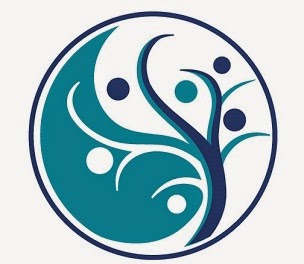If you've ever talked to me for more than 4 minutes, the conversation has probably turned to the work of Wellspring ...specifically our vision of ending relationship and sexual abuse. For more than 30 years we've been helping people one-on-one to break free, heal, rebuild their lives and become survivors. Our legal advocates help them to seek justice and hold the offender accountable. We do prevention programs to help people know how to stay safe and we also talk with youth about abusive behaviors to deter abuse. I wouldn't stop doing any of these essential activities, but they're not enough and I'm convinced they're not the solution.
Why? Because support services to survivors, court advocacy or prevention programs all focus on changing individual behavior. Assisting survivors doesn't stop relationship or sexual violence; it helps with healing and can reduce future victimization. Alternately many people say the answer is to focus on the person choosing to victimize, i.e., get to the root cause. That may reduce the incidence of abuse, but there will always be people who choose to do what's wrong. Does anyone actually believe stealing is right? Probably not... but people choose to steal every day.
I think the solution rests not with survivors or their abusers, but with people on the sidelines; their actions or inactions often determine whether the abuse is tacitly condoned and whether the victim feels powerless and trapped.
“The world is not dangerous because of those who do harm but because of those who look at it without doing anything”
~ Albert Einstein
Intimate partner and sexual violence have echoed throughout the news in recent months. As I look at each of the stories, I'm repeatedly struck by how often WE allow the abuse to continue. After the news coverage, we debate what the involved individuals could have, should have, or failed to do, but what repeatedly strikes me is what other people didn't do. Think about these news stories:
- Bill Cosby- Did he? Didn't he? We don't know. But in countless accounts, the alleged victims talk about how when they told someone they weren't believed, were dismissed or even threatened. Barbara Bowman's account of being sexually violated by Cosby 30 years ago, captures the frustration of a young woman challenging a man who was an icon in the entertainment business, "I first told my agent, who did nothing...A girlfriend took me to a lawyer, but he accused me of making the story up. Their dismissive responses crushed any hope I had of getting help; I was convinced no one would listen to me. That feeling of futility is what ultimately kept me from going to the police." What if she had not met this resistance. Would there have been an investigation and determination. Perhaps Cosby's name would have been cleared or future incidents prevented. What if someone had stood by Bowman when she said she'd been assaulted? That was 30 years ago, things are different now, right?
- The NFL and domestic violence- A shocking report by the Washington Post entitled "For battered NFL wives, a message from the cops and the league: Keep quiet" details not only how the NFL turns a blind eye to domestic violence, but actually covers up domestic incidents to protect the players' careers and the League's reputation. What if the League enforced their code of conduct and provided resources to players who struggle with aggression?
- A recent Rolling Stone article, "A Rape on Campus: A Brutal Assault and Struggle for Justice at UVA", describes a culture on the University of Virginia campus that can be as misogynistic and aggressive as any inner city gang. But the prestige, honor and old money privilege of a campus founded by Thomas Jefferson, cloak the sexual assaults under the genteel southern euphemism of a 'bad experience'. What if the university's culture valued the health and safety of students more than protecting the hallowed reputation of the institution?
All that is needed for evil to triumph
is for good men to do nothing.
~Edmund Burke
Silence hides violence... let's all choose to break that silence? The solution doesn't rest with individuals involved... they're too close to the issue; it rests with the rest of us.

